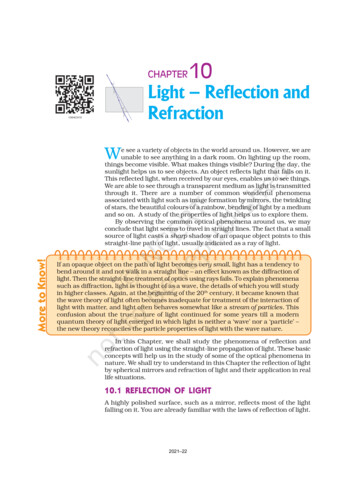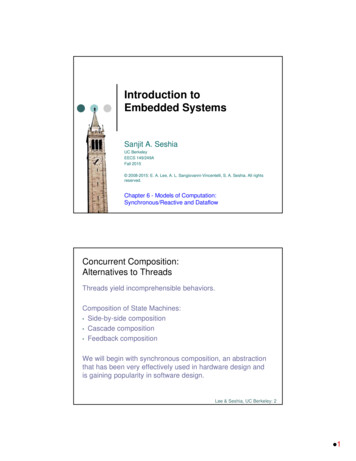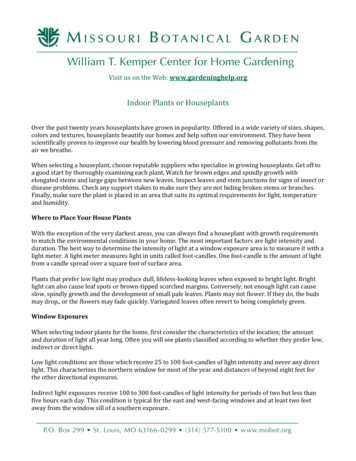
Transcription
J01742 - Secret of a Good Relationship (COVER).indd 1-2J01939 - DKBS The Challenge COVER.indd A-B22/4/19 12:06 PMJ01397 - The Art of Giving A6 Booklet (COVER).indd 1-210/8/18 2:54 pmJ01418 - Are You Ready for Old Age (COVER).indd 5-67/31/17 3:30 PM8/1/17 1:47 PM
Dhammakami Buddhist Society,29, Lorong 29 Geylang,#06-02,Singapore 388078Copyright 2020 by Dhammakami Buddhist SocietyAll rights reserved. No part of this book may be reproduced inany form or by any means, electronic or mechanical, includingphotocopying, recording, or by any information storage andretrieval system or technologies now known or later developed,without permission in writing from the publisher.This book is for free distribution only. Additional copies of thisbook can be obtained from Dhammakami Buddhist Society.Enquiries of reproduction may be addressed to: dkbs@dhammakami.orgISBN: facebook.com/DhammakamiSG/First Printing : November 2020
AcknowledgementsWhen the Covid-19 pandemic broke out in Singapore at thebeginning of the year 2020, all Dhamma classes, annualevents, and daily activities at our centre came to a standstill.We have to move to the online platform and social media tocarry out some of the Dhamma activities.During the Circuit Breaker period in Singapore (from 7thApril to 1st June 2020), we ventured on a new Dhamma bookproject. With help from like-minded Dhamma friends, westarted to transcribe some of the Dhamma Talks that I gaveat Dhammakami Buddhist Society. These were talks given inthe ‘Dhamma Study & Daily Practice Class’ during the year2018 to 2019.A erwhich, we edited these transcriptions for ease of readingand understanding. We had omitted the Pāli quotations fromthe Suttas, which I o en used in my talks, in these essays. Butthe English translations of these quotations were retained.These sayings of the Buddha were summarised and adoptedstrictly from its original meanings. For the benefits of thosewho wish to read further on the original Suttas, I have giventhe details in the footnotes.JJJ
The successful completion of this Dhamma book is the resultof a strenuous collective effort of many Dhamma friends.The talks were recorded by Thiri Aung Thein, Phan MingYen, Ivan Kwek, Leslie Chan and Satimanta Loo. Withoutthese audio recordings, which were also uploaded on ourweb page, it would not be possible for these talks to betranscribed.Audio transcription is a time-consuming process whichrequires much patience. I am fortunate to have a group ofdedicated volunteers who undertook this difficult task. Theyare Lily Tan, Ho Eng Chin, Ong Ju Lee, Leong Mei Keat, SkyeWee Siew Kheng, Janis Tng and Yen Lai Ngoh.However, not all the transcribed Dhamma Talks wereselected for publication. In this book, we included seventeentalks, and in time to come, another book for the rest of thetalks will be published. These selected talks were editedby Ong Ju Lee, Lily Tan, and Evelyn Yeo Buay Hong. Theyhad put in laborious efforts to have these write-ups suitablyfinalized for print.The project coordination and proofreading tasks of thisbook were painstakingly done by Kathrine Zee. With specialthanks too to the Dhammakami Management Committee,this project was successfully concluded.JW
Last but not least, let’s be grateful to our very generousdonors, who have gi ed us this book, a collection of DhammaTalks, LIGHT THE PATH!Thank you all for being the great pillars of strength tothe Triple Gem. May the Dhamma shine forth bright andbrilliant for the well-being and happiness of the multitude!May those with ‘little dust in their eyes’ see the Light andfollow the Path!May you all be well and happy!Ven. K. RathanasaraDhammakami Buddhist Society,No 29, Lorong 29 Geylang, # 06-02,Singapore 388078.krsara@gmail.com31st August 2020W
Are all religions similar? .1Do we need to have a religion to lead an ethical life?.9Are there any esoteric teachings in Buddhism?. 17Buddhist concept of Creator God . 23What do wise parents do for their children? . 31Spirit possession and exorcism . 37Will the Earth be destroyed one day? . 45Do you have a soul? . 53Withdrawing life support machine and First Precept . 59Does rebirth happen immediately a er death? . 67How should we react when the Buddha is attacked?. 75What is Noble Silence? . 81Mind your own business . 89The Buddha as a Social Reformer . 97Dispassion, Compassion and Wisdom . 105Why do Buddhists celebrate Vesak on different dates?. 113What are the last words of the Buddha? . 119WJ
Are all religions similar?Are all religions similar? There is a belief among somepeople that ultimately, all religious practices lead to thesame spiritual goal and therefore, all religions are similar,though they may be labelled differently. This is a kind ofpopular belief and concept upheld by some.Despite the beauty and value of this belief, Buddhism doesnot subscribe to this idea. However, Buddhism recognisesthere are similarities and differences between religions.The Buddha encouraged all his disciples to study andunderstand other religions. In fact, the Buddha himselfhad many dialogues with other religious teachers duringhis time. They engaged in constructive and amicablediscussions without any conflicts.In the spirit of the Buddha’s teaching, we encourage allfollowers to look for similarities between religions. If youcould see how similar we are to each other and how ourbeliefs have much in common, if you could understandthe similarities we share beyond the different labels, thenthat attitude and recognition will lead to unity, peace and
Are all religions similar? 2happiness among the various religious and ethnic groups,which is remarkable and wonderful.In fact, there are more similarities than differencesbetween the various religions. Buddhists are encouragedto visit other religious places, participate in other religiousceremonies, and mingle with non-Buddhist friends tounderstand their beliefs. If you could understand how theyperceive the same subject that we study, it might dawn onyou that actually, we share a lot of similarities.However, that does not mean we should ignore thedifferences. A er all, we do believe that the Four NobleTruths, advocated by the Buddha, are the ultimate truth.With that in mind, we should proceed to understand thedifferences between the various religions, while attemptingto gain a deeper knowledge and appreciation of otherreligions.Buddhists are encouraged to embark on comparativestudies of Buddhism and other religions, not for the sakeof argument, but for the sake of understanding. Duringthe Buddha’s time, there were friendly dialogues betweenBuddhist monks and followers of other religions. Theyopenly discussed the differences between their religionswithout any hostility.
3 LIGHT THE PATHNow, we come to the main topic of how Buddhism isdifferent from other religions. To understand this, let usfirst analyse our own teachings.The Buddha recommended three-fold training for hisfollowers. When we analyse and compare them with otherreligious faiths, we might understand how similar we are toeach other and how different we are at the same time.The first of them is ‘training in higher virtues’. Here, theBuddha encouraged all his disciples to nurture marvellousand beautiful qualities like loving-kindness, compassion,goodwill, friendship, generosity, humility and gratitudeetc. But do you think this is only practised in Buddhism?No, there are many religions which also seek to bring outthe beauty in the human heart. So, in this case, we are notunique. In fact, we are similar to other religions.In training to cultivate higher virtues, the Buddha alsodiscouraged all his disciples from engaging in any kind ofunethical, unwholesome, and harmful speech and actions.But do you think this is only practised in Buddhism? No, inother religions too followers are encouraged to keep awayfrom evil, wicked, immoral and unwholesome behaviour.Followers of the Buddha and many other religions sharethe common goal of upholding righteous principles and
Are all religions similar? 4eschewing immoral practices. This is not exclusive toBuddhism.The second training is to ‘develop a higher mind’. In orderto develop a higher mind, we need to practise meditation.If you are a Buddhist, meditation is not an option; it iscompulsory. Each and every human being has the potentialto develop the mind. In fact, even before the Buddhaappeared in the world, there were already other religiousteachers who had developed higher mind and attained ahigh level of concentration (jhāna). They also managed toachieve various kinds of psychic powers. So in this secondaspect, which is the training to develop a higher mind,Buddhists are not unique. In fact, this is something whichwe have in common with some religions.The third training the Buddha set up for his followers is‘training in higher wisdom’. In this third aspect, Buddhistsare unique, incomparable and unparalleled. There is noother religion on the planet that is similar to ours in thisaspect. What is this aspect? It is about the development ofwisdom based on Insight meditation (vipassanā). Throughthis practice, we can develop penetrative wisdom whichuproots all the defilements from our mind perfectly,permanently and irreversibly. Once we attained that level,it is known as Enlightenment (Nibbāna). So in this last
5 LIGHT THE PATHaspect, the Buddha’s teaching is unique, and this setsBuddhism apart from other religions.In one of the discourses, there was an anecdote about agroup of monks who went for alms round in the city ofSāvatthi. Over there, they met another group of asceticsfrom another religion who asked these monks:“Friends, your teacher, the ascetic Gotama, described thefull understanding of sensual pleasure, but we describedthat too. Your teacher, the ascetic Gotama, describedthe full understanding of form, but we described thattoo. Your teacher, the ascetic Gotama, described the fullunderstanding of feelings, and we described that too.So what is the difference between our religion and yourreligion?” That was the question posed by these ascetics tothe monks. So what did the monks say? They said nothingbut remained silent.Then those monks went to the Buddha and repeated theincident. The Buddha said, “Monks, you should havequestioned them, ‘Friends, what is the gratification,what is the danger and what is the freedom in the caseof sensual pleasure? What is the gratification, what isthe danger and what is the freedom in the case of form?What is the gratification, what is the danger and what is
Are all religions similar? 6the freedom in the case of feelings?’ If you had asked thatquestion, they would not have been able to answer you, andfurthermore, they would have found themselves in a verydifficult situation too. Why? Because it is not their field ofdomain. I do not see anyone who can answer this question,except the Tathāgata (Buddha) or his disciples.”1So Buddhism is unique in this last aspect. Why? This isbecause it leads to the eradication of all the defilements,perfect detachment, cessation from suffering andEnlightenment.There is another way for us to look at the question ‘areall religions similar?’ That is to look at all religions fromthree angles - the belief, the practice and its ultimate goal.Whichever religion we belong to, the belief, the practiceand the ultimate goal are the three major points. If youwere to look at Buddhism and other religions through thesethree angles, you might still see the difference.When it comes to belief, many religions demand unquestioning belief, but not Buddhism. In Buddhism, what youare supposed to have is understanding, not belief. Blindbelief, a concept rejected by the Buddha, is a hindrance inthe path towards spiritual awakening. What you must have1. Mahādukkhakkhandha Sutta; No 13; Majjhima Nikāya
7 LIGHT THE PATHis understanding. To develop understanding, you musthave freedom of thinking, analysing and questioning. Inthis regard, there is no single religion on the planet thatadvocates the freedom of thought and analysis as much asBuddhism does.2What about practice? In many religions, prayers andreligious rituals are a major part of the practice. They areessential to achieve a spiritual goal. In Buddhist teachings,you cannot attain Enlightenment through prayers,chanting, rites and rituals. Although Buddhist monksdo perform rites and rituals to help laypeople to achievetheir worldly wishes, Buddhists do not believe that theycan attain Enlightenment through such rituals. So instead,you have to follow the Noble Eightfold Path, which developsyour ethical, spiritual and intellectual faculties. Again,herein lies the difference. We emphasize the practice ofthe Noble Eightfold Path and not prayers and rituals.What about the ultimate goal? In many religions, theultimate goal is to be born in heaven. One can beborn in heaven only a er death. The ultimate goal ofBuddhist teaching is Enlightenment (Nibbāna). However,Enlightenment is to be achieved while you are living hereand now, not a er death.2. Kālāma Sutta; A guttara Nikāya 8:54
Are all religions similar? 8Some religions teach that salvation can be achievedthrough the grace of God. In this case, no one can achieveEnlightenment through the mercy of the Buddha. TheBuddha is a Supremely Enlightened Teacher. Out of GreatCompassion, he shows the path to Enlightenment. Inother words, the Buddha will teach you the way, but youmust walk along the path by yourself. Understanding theteaching and practising the path should go hand in hand inorder to attain Enlightenment.In conclusion, there are similarities and differencesamong religions. Buddhism shares many similarities withother religions, while it is unique and unparalleled in itsexposition of the Four Noble Truths and the Noble EightfoldPath.
Do we need to have a religionto lead an ethical life?SometimesI hear people say, ‘I did not do anythingbad, why should I go to the temple?’ According to some ofthese people, it seems like, ‘As long as I do not do anythingbad, I do not need to follow a religion’. In other words, theirunderstanding is that religion is there for them to lead anethical life, but is this the purpose of religion?Do we need a religion to lead an ethical, decent human life?From the Buddhist point of view, we cannot support thisidea. We do not need a religion to lead an ethical life.Many freethinkers do not believe in any religion. Some ofthese freethinkers are excellent in their behavior. They arevery decent, nice, kind, caring, loving people, but they donot have any religion. They are leading ethical lives withoutany religion.For thousands of years, the Chinese have been leading anethical life without religion. Confucianism is not a religion,but Confucianism encourages ethical behavior. Whatabout those philosophers like Socrates and Plato, who
Do we need to have a religion to lead an ethical life? 10also encouraged ethical living? These people led ethicallives without a religion. We cannot say leading ethicallife is the only purpose of religion. If it is the purpose ofreligion, then we do not need it because we can do withoutit. However, the ethical aspect of religion is a major partof all the world’s religions. In every religion, followers areencouraged to avoid evil and do good. We do not need tobe religious or spiritual to live an ethical life, but beingreligious and spiritual perhaps might have a positiveimpact.Now, when it comes to theocentric religions, they encourageethical conduct based on these three things: faith, reward,and punishment. According to theocentric beliefs, religioncomes to man as a divine message from God. Thesereligious teachings, principles, ethics are recorded in holybooks. Out of faith in God, when you follow the ethicalprinciples taught by these theocentric religions and lead apure ethical life, you will be rewarded. A er death, you willbe born in heaven.What will happen if you go against these religiousprinciples taught in the holy books? Then, you will beborn in hell. So these three concepts, faith in God, rewardin the heaven, and punishment in the hell, are used bytheocentric religions to guide the human beings to keep
11 LIGHT THE PATHaway from evil and lead an ethical life. Now, Buddhismis not a theocentric religion. Buddhism is a homocentricreligion. It centers around human beings. Buddhism alsoteaches ethical conduct, but how does Buddhism encouragethe ethical behavior of human beings? Because we donot have these three concepts, the way that is taught intheocentric religions. Now, as followers of the Buddha, allof us need to understand the difference.In Buddhism, we do not have the God concept. We do notbelieve that the Buddha is someone who is in judgementto give us reward or punishment, but the Buddha whoachieved Supreme Enlightenment can guide us. He hasguided us on how to lead a pure, righteous, ethical humanlife. So, what is the base for the ethical behavior of humanbeings from the Buddhist point of view? In Buddhism,ethical behavior comes with the right understanding. Here,the right understanding is three-fold.The first understanding is that ‘all the living beings in thisworld want to be happy’1. Every single living being on thisplanet, starting from a tiny insect crawling at your feet, upto the big animals like elephants or whales, they all wishto be safe, they all wish to be happy. This understanding asa follower of the Buddha gives you the courage to refrain1. Dhammapada verse 131
Do we need to have a religion to lead an ethical life? 12from doing anything evil, wicked, immoral that harmsother living beings, and brings suffering to others.The second understanding is that ‘all living beings arerunning away from suffering.’ The Buddha said, “all livingbeings have fear towards punishment, fear towards death.Having compared yourself with others, you must refrainfrom torturing, injuring other living beings”2.So here the most important point is to take yourself as anexample. You put yourself into the shoes of others. Do youlike to be killed? You do not like it! So having understood it,you refrain from killing living beings.Do you like someone to steal your things? You do not likeit! In the same way, others also do not like their possessionto be taken away. So having understood it, you refrain fromstealing.Do you like your wife or husband to be engaged inextramarital affairs or do you like to be sexually abused?You do not like it, so other human beings also do not like it.Having understood it, you refrain from sexual misconduct.2. Dhammapada verse 129
13 LIGHT THE PATHDo you like to be cheated? If someone lied to you and youare cheated, do you feel comfortable, happy? You do not.Having understood it, you refrain from telling lies.In this way, all the precepts, all the ethical conductproclaimed by the Buddha, suggested by the Buddha havethese two principles. One aspect is that everyone wishesto be happy, including yourself. Thus, you must behave insuch a way that you will bring peace and happiness. Theother is that no one likes to suffer, and everyone is afraidof suffering; having understood it, you must not create anysuffering.The third understanding is that ‘you are responsible foryour actions’3. Buddhism teaches that you are the one whocreates your heaven or hell, nobody else. We also have theconcept of heaven and hell, like the other religions. But theway that we present it is different. From the Buddhist pointof view, no one can push you to hell or pull you to heavenbut yourself. It means action responsibility. You are giventhe freedom, freedom of thinking, freedom of behaviour,but freedom comes with responsibility. You are responsiblefor your actions.3. Dhammapada verse 165
Do we need to have a religion to lead an ethical life? 14The Buddha encourages you to behave in such a waythat you will be happy here now, and in the herea er. Hesuggests you refrain from doing evil, wicked, immoral,unwholesome actions for the simple reason these actionsproduce suffering. He encourages you to be ethical and dowholesome actions because these actions produce bliss andhappiness. Therefore, the Buddhist foundation for ethicalbehaviour is not fear of punishment or pleasure of rewardor faith but rather understanding.So with this, now, I ask the question again, do we need areligion to lead an ethical life? As I already mentioned inthis talk, from the Buddhist point of view, we do not needa religion to lead an ethical life. In that case, what is thepurpose of Buddhist teaching then?The purpose of Buddhist teaching is to lead the followers toEnlightenment. All the unethical, immoral, unwholesomehuman behaviour are rooted in greed, hatred, and ignorance.The Buddha teaches how to uproot them. To uproot them,he suggests a very systematic and well-designed path. Thispath is specifically designed for that; this is nothing butthe Noble Eightfold Path.
15 LIGHT THE PATHNoble Eightfold Path is divided into three sections. Trainingin higher virtues is the first. This is training human beingsto lead a pure ethical life, that is only the beginning. Secondis training in the higher mind. Those human beings who areethically behaving well and uphold righteous principles canstart to develop the mind through meditation. Meditationis not optional. It is a part of Buddhist training. The thirdaspect is training in higher wisdom, which can breakthrough the ignorance and shackle all the fetters. Then wewill be released from all the bonds that bind us together inthe cycle of existence and become free from the repeatedbirth and death cycle. This is the Enlightenment.Thus, from the Buddhist point of view, we do not need areligion to lead an ethical life. But religious and spiritualpractices can reinforce ethical behavior. For the Buddhists,ethical conduct is only the beginning; the end goal of theBuddhist practice is Enlightenment.
Are there any esotericteachings in Buddhism?Thereare some Buddhist traditions, and even someBuddhist schools which proclaim that they offer thesecret teachings of the Buddha. They know the fastestway to Enlightenment, the short-cut. This belief and thesestatements are misleading because they are not accordingto the Dhamma. There are no short-cuts to Enlightenment.We need to practise diligently.Are there secret teachings in Buddhism? In PaticchannaSutta1, the Buddha said, “Monks, these three things aredone in secret, not in the open. What are these threethings? Affairs with the women are done in secret, not inthe open. Hymns of the Brahmin are done in secret, notin the open. Wrong views are held in secret, not openly.But monks, these three things, when open, shine forth.They cannot be hidden. What are these three things? Sun,Moon, and the Teachings of the Enlightened Ones. Theseare shining, and they shine brightly and brilliantly.” Theseare wise words by the Buddha.1. A guttara Nikāya 3:129
Are there any esoteric teachings in Buddhism? 18The doctrine and discipline proclaimed by the Buddhashine forth when they are expounded, not when they arehidden. So, Dhamma is to be expounded and elaborated,and not meant to be kept in the library or kept hidden.Dhamma is open for us to study and analyse.Svakkhāto Bhagavatā Dhammo; Dhamma is well-expoundedby the Blessed One, well-delivered by him. If Dhammais well-expounded by the Blessed One, how can there besecret teachings? Secret teachings are impossible and notin accordance with the Dhamma. Do not be misled; thereare no secret teachings in Buddhism. Everything is open.In Mahāparinibbāna Sutta2, the Buddha very clearly andprecisely said these words, “Ānanda, the Tathāgata does nothold any secret teachings.” I will tell you the backgroundof this statement. According to the sutta, when the Buddhawas in Beluva village, he fell sick and was gravely ill.But then he thought, “It is not proper for the Tathāgatato pass away without announcing it in advance. I must letmy disciples know.” Then he used his psychic power andsupernormal abilities to subdue his sickness and forcedhimself to recover.2. No 16; Dīgha Nikāya
19 LIGHT THE PATHA er he had recovered from that sickness, he came outand sat outside in the shade. Then, Venerable Ānandaapproached him and, having paid respect to the Buddha,said these words, “Venerable Sir, when you were very sick,I was so upset, so sad that I lost my mind because youwere almost dying. But there was one consolation for me;there was one thing which gave me hope. I thought, ‘TheBuddha will not pass away without giving instructions tothe monks regarding what is to be done.’” The Buddhareplied, “Ānanda, what do the monks expect from me? Ihave taught you all openly without holding any secrets.”And these are the words, “I have taught you all openly. I donot keep any secrets, what do you all still expect from me,what instructions do you all want?” The dialogue betweenthe Buddha and Venerable Ānanda continued further, andthe Buddha encouraged Venerable Ānanda to rely on theDhamma, to practise the Dhamma, and to be a light ontohimself. So the Buddha very clearly said, there are nosecrets in his Teachings, and the Tathāgata does not holdany secrets related to the Dhamma.Given the above, there is really no grounds for Buddhistsor any Buddhist traditions to proclaim that they hold secretteachings of the Buddha. It is very probable that thesetraditions have been influenced by Brāhmanical practices
Are there any esoteric teachings in Buddhism? 20in ancient India. Secret teachings can be found amongstBrahmanical teachings which are known as Upanishad.The word Upanishad means sitting near to the Teacherand receiving the teachings. And these teachings are givenonly to selected students.But this is not the case in Buddhism. In Buddhism, theteachings are open for everyone. Around the 6th, 7th, 8thcenturies in ancient India, there were popular demands forcertain practices like recitation, magic and other kinds ofmystical practices which we can recognise today with theterms Yantra (mystical diagram), Mantra (numinous sound),and Tantra (system or instrument). These practices wereborrowed by some Buddhists, and they created their ownversions of Buddhism. This is the truth, and this is history.Sandiṭṭhiko; Dhamma is visible here and now, and thereis nothing to be hidden. One day a Brahmin approachedthe Buddha and asked this question, “Venerable Sir, how isDhamma visible here and now?” The Buddha said, “Whenyour mind is full of greed, hatred and ignorance, when yourmind is covered with these defilements and overpoweredby them, then you may behave in such a way that you willdo harmful actions to yourself and others. You may makewrong decisions, and you may suffer from the misery thatyou have created, because of your own greed, hatred andignorance.”
21 LIGHT THE PATH“I’m teaching the Dhamma to destroy and uproot thesedefilements. When your mind is devoid of these defilements,it will be blissful, peaceful, happy and joyful. So in thisway, Dhamma is visible here and now.”3 Dhamma is notsomething to believe in, but to be practised. Only thencan you see the results of your practice, here and now. Towhatever extent you can reduce your defilements, to thatextent you can enjoy peace and happiness.Akāliko; Dhamma goes beyond the time. Some peoplebelieve that Enlightenment cannot be achieved in ourmodern society. How can it be? If the Buddha says Dhammais visible here and now and it is beyond the time, then wecannot say that people achieved Enlightenment only inthe past. This is a misinterpretation. There is no reasonfor us to justify that only those people who lived in India2500 years back could achieve Enlightenment, but notpeople who are living in Singapore or somewhere else inthe present. These statements are not according to thetrue Dhamma. Dhamma is visible here and now, and if youpractise hard and diligently, you will be Enlightened.3. Paribbājaka Sutta; Aṅguttara Nikāya 3:54
Are there any esoteric teachings in Buddhism? 22Ehipassiko; come and check it out. The Buddha does notencourage blind faith; he encourages you to learn theDhamma, practise it and experience it by yourself. TheDhamma is openly available for everyone to come andsee for themselves, as there is nothing to hide, and theDhamma is something to be verified personally. So, if thereare secret teachings, we cannot say “come and see foryourself”.Opanayiko; onward leading to Nibbāna. The Dhammawill lead you only upward on the spiritual path, towardsEnlightenment. With that in mind, step-by-step, wedevelop our ethical, spiritual and intellectual faculties, andeventually, we will break through the ignorance and attainEnlightenment.Paccattam veditabbo viññūhi; This teaching is to berealised by wise people, therefore we need to have somedegree of intelligence to realise the Dhamma, but it doesnot mean you have to be a scholar. As long as you havethe ability to analyse and scrutinise the teachings, as longas you have the dedication to practise diligently, you canbe Enlightened. But of course, there is no secret teachingthat reveals the ‘short-cut’ to Enlightenment. We need topractise diligently.
Buddhist concept ofCreator GodDuringthe time of the Buddha, in ancient India,Brahmanism w
The successful completion of this Dhamma book is the result of a strenuous collective eff ort of many Dhamma friends. The talks were recorded by Thiri Aung Thein, Phan Ming Yen, Ivan Kwek, Leslie Chan and Satimanta Loo. Without these audio recordings, which were also uploaded on our web page, it wou










